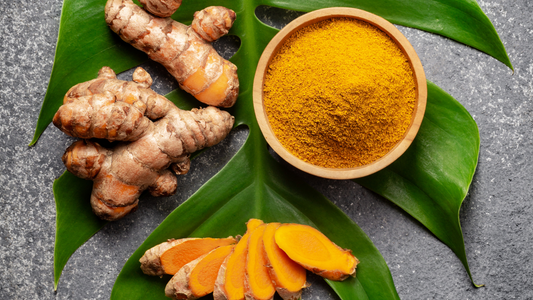
Top 10 Protein Rich Foods For Muscle Recovery
share
During exercise, muscle damage occurs in the form of micro-tears along with the breakdown of proteins. When protein stores are replenished, this initiates the repair of muscle damage post-exercise, allowing muscle to strengthen and mass to build over time. There is an array of factors which impact this repair process, such as the type, intensity, duration, frequency of training exercise. Resistance training is ideal to build and tone muscles as the resistance to muscular contractions encourages the body to compensate as required and in doing so repeatedly, this will increase the muscle to fat ratio. A key element in muscle recovery is to consume adequate protein to facilitate in the muscle repair and building process. Protein contains amino acids which are commonly known as the ‘building blocks’ required to form a complete protein in muscle tissue – particularly the Branched-Chain Amino Acids (BCAA’s): leucine, isoleucine and valine which increase muscle protein synthesis and enhance muscle recovery and growth, while also reducing fatigue and muscle soreness, known as Delayed Onset Muscle Soreness (DOMS).
It is important to stretch before workouts and resting the muscle group after workouts as this maintains a healthy balance of muscle protein synthesis to muscle breakdown. To maximise muscle recovery with protein, it is recommended to consume this macronutrient within 45-60 minutes after exercising, however immediately is ideal. The Recommended Dietary Intake (RDI) of protein for adults is 46 g/day (0.75 g/kg) for women and 64 g/day (0.84 g/kg) for men.
Seaweed
Seaweed describes forms of algae including the red, brown and green variations. The highest protein content is found in nori, which is also commonly known as laver. Nori is the type of seaweed generally used to wrap sushi and as sheet snacks, containing 46.7g per dried 100g in comparison to raw nori, only containing 5.8g. Additionally, dried spirulina is a great addition to smoothies, containing 57g per 100g.
Cheese
Cheese is a great vegetarian source of protein and with many variations, it’s easy to incorporate into your meals without feeling like you have repeated the same dish over and over. Parmesan cheese has the highest content at 38g per 100g, followed by gruyere 30g, mozzarella 28g, Swiss 27g, provolone 26g, cheddar, Edam, and Gouda providing 25g, Monterey Jack and Colby 24g and lastly, goat cheese 22g.
Lupin
Lupin beans are a type of legume, technically a seed. They are protein packed, containing 36g per 100g of dried mature seeds however reduce to 16g when boiled. The trick is to soak them overnight, softening them into an edible form while retaining nutrients including iron, potassium, calcium and folate.
Poultry
In the category of poultry, chicken breast is an ideal source of lean protein, containing 32g per 100g, followed by wings 30g, thighs 24g and drumsticks 18g. The runner up, roasted turkey breast also contains a good amount of protein at 29g per 100g. Top Tip: chicken pate is an excellent source of nutrients including vitamins, minerals, unsaturated fats and antioxidants.
Hemp Seeds
Hemp seeds are a complete source of plant-based protein, meaning they contain all of the 9 essential amino acids which is important to build and repair muscles. They are a nutritional powerhouse containing 32g of protein per 100g, plus various vitamins, minerals and Polyunsaturated Fatty Acids (PUFAs) including omega-3 and omega-6, with a low carbohydrate content. Hulled hemp seeds, also known as hemp hearts are more common, however whole seeds contain a higher nutritional content.
Red Meat
Lean pork chop contains 31g of protein per 100g when braised and also contains a higher amount of polyunsaturated fatty acids compared to beef. If beef is preferred, sirloin steak is the ideal choice as it’s a lean cut and contains 29g per 100g when broiled. Beef jerky however surpasses with 33g of protein. Although costly, organic selections of meat will help to avoid the unwanted intake of residual hormones and antibiotics which may be present in meats and similarly, grass-fed animals naturally contain higher amounts of healthy fatty acids.
Seafood
Deep sea, cold water fish such as salmon are rich in protein and unlike chicken or red meats, contain a much higher content of omega-3. In the instance of muscle building in repair, anti-inflammatory omegas may provide benefit to muscle healing after a workout. Tuna contains 29g of protein per 100g which is comparable to anchovies.
Lentils
Lentils are a highly nutritious alternative to meat containing 25-26g protein per dried 100g, plus they are rich in fibre, B-vitamins and minerals such as iron, zinc, manganese and potassium. Lentils contain natural antioxidant compounds known as polyphenols which provide anti-inflammatory effects. Brown, green, yellow and red lentils have varied nutritional compositions, slightly different flavours and also cook differently.
Soy Beans
Soy beans are a plant-based source of protein with the additional benefits of B-vitamins, vitamin K, iron, manganese, fibre, antioxidants and the mineral phosphorus, which helps with the growth and repair of tissues. Soy products can be prepared in many ways, for example, per 100g cooked edamame beans contain 12g of protein, tofu 8g with higher amounts in firm tofu, tempeh 20g, miso paste 12g and 6.3g in a cup of soy milk.
Eggs
On average, eggs contain 13g of protein per 100g or approximately 2 medium eggs. While egg whites have fewer calories, they also contain less protein content without the yolk – so to increase your protein intake ensure you are consuming whole eggs. A bonus when making an omelette with other protein-rich foods such as chicken or cheese topped with hemp seeds.
If you are looking to increase your dietary intake of protein for post workout muscle recovery, why not try out some of these suggestions? Don’t be afraid to experiment a little!
Disclaimer:
Protein quantities are all approximate values which may vary based on multiple resources and quantities are measured per 100g, unless stated otherwise.
Reference List
- Better Health, (2018). Resistance training – health benefits. Retrieved from: https://www.betterhealth.vic.gov.au/health/healthyliving/resistance-training-health-benefits
- Carbone, J. W., & Pasiakos, S. M. (2019). Dietary Protein and Muscle Mass: Translating Science to Application and Health Benefit. Nutrients, 11(5), 1136. https://doi.org/10.3390/nu11051136
- Daley, C. A., Abbott, A., Doyle, P. S., Nader, G. A., & Larson, S. (2010). A review of fatty acid profiles and antioxidant content in grass-fed and grain-fed beef. Nutrition journal, 9(10). https://doi.org/10.1186/1475-2891-9-10
- Department of Primary Industries and Regional Development's Agriculture and Food, (2021). Reducing livestock greenhouse gas emissions. Retrieved from: https://www.agric.wa.gov.au/climate-change/reducing-livestock-greenhouse-gas-emissions
- Food Standards Australia & New Zealand, (2019). AUSNUT 2011-13 food nutrient database. Retrieved from: https://www.foodstandards.gov.au/science/monitoringnutrients/ausnut/foodnutrient/Pages/default.aspx
- Healthline, (2016). 5 Proven Benefits of BCAAs (Branched-Chain Amino Acids). Retrieved from: https://www.healthline.com/nutrition/benefits-of-bcaa#TOC_TITLE_HDR_1
- Healthline, (2016). BCAA Benefits: A Review of Branched-Chain Amino Acids. Retrieved from: https://www.healthline.com/nutrition/bcaa
- Healthline, (2016). Post-Workout Nutrition: What to Eat After a Workout. Retrieved from: https://www.healthline.com/nutrition/eat-after-workout#TOC_TITLE_HDR_4
- Healthline, (2019). Grass-Fed vs. Grain-Fed Beef — What’s the Difference? Retrieved from: https://www.healthline.com/nutrition/grass-fed-vs-grain-fed-beef#differences
- Kyriakidou, Y., Wood, C., Ferrier, C. et al. (2021). The effect of Omega-3 polyunsaturated fatty acid supplementation on exercise-induced muscle damage. J Int Soc Sports Nutr 18(9). https://doi.org/10.1186/s12970-020-00405-1
- Medline Plus, (2021). Benefits of Exercise. Retrieved from: https://medlineplus.gov/benefitsofexercise.html
- Medline Plus, (2021). Dietary Proteins. Retrieved from: https://medlineplus.gov/dietaryproteins.html
- My Food Data, (2021). Nutrition Facts Search Tool. Retrieved from: https://tools.myfooddata.com/nutrition-facts
- My Food Data, (2021). Top 10 Foods Highest in Protein. Retrieved from: https://www.myfooddata.com/articles/foods-highest-in-protein.php
- National Health and Medical Research Council (NHMRC), (2014). Protein. Retrieved from: https://www.nrv.gov.au/nutrients/protein
- The President and Fellows of Harvard College, (2021). The Nutrition Source. Retrieved from: https://www.hsph.harvard.edu/nutritionsource/what-should-you-eat/protein/
- U.S. Department of Agriculture, (2019). Organic 101: What the USDA Organic Label Means. Retrieved from: https://www.usda.gov/media/blog/2012/03/22/organic-101-what-usda-organic-label-means
- U.S. Department of Agriculture, Agricultural Research Service. (2019). FoodData Central. Retrieved from: https://fdc.nal.usda.gov/
- VanDusseldorp, T. A., Escobar, K. A., Johnson, K. E., Stratton, M. T., Moriarty, T., Kerksick, C. M., Mangine, G. T., Holmes, A. J., Lee, M., Endito, M. R., & Mermier, C. M. (2020). Impact of Varying Dosages of Fish Oil on Recovery and Soreness Following Eccentric Exercise. Nutrients, 12(8), 2246. https://doi.org/10.3390/nu12082246
- WebMD, (2020). Branched-Chain Amino Acids. Retrieved from: https://www.webmd.com/vitamins-and-supplements/branched-chain-amino-acids-uses-risks
share
Stay Informed. Feel Your Best.
Get expert tips and actionable health advice. Be the first to hear about Caruso's product launches and receive exclusive promotional offers.
Join our newsletter today.



